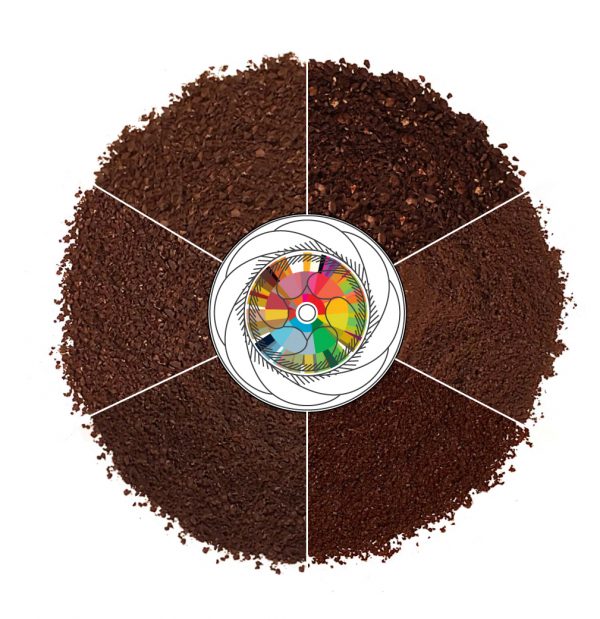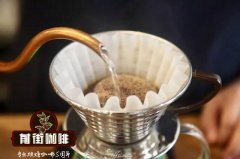Tasting teacher 20 test questions _ Q Grader course written test project "Coffee Comprehensive knowledge examination"

Professional coffee knowledge exchange More coffee bean information Please pay attention to coffee workshop (Weixin Official Accounts cafe_style)
1. Coffee General Knowledge Test (one test)
The coffee general knowledge test is the only written test in the Q Grader course. It consists of 100 questions on coffee growing, picking, pre-processing, cup testing, grading, roasting, and brewing. To pass this test, candidates must answer 75% of the questions correctly within 60 minutes.
2. Sensory Skills Test (three tests)
Sensory skills test sets the basic standard of taste sensitivity, candidates have to independently distinguish different intensities of salty, sour, sweet. The exam is divided into three parts:
Part I: Reference Group Identification (Pass Score: 100%)
Candidates need to arrange the correct intensity from each group of solutions
Part II: Blind Group Identification (Pass Score: 80%)
Candidates need to distinguish between taste types and intensity levels in blind tests
Part III: Mixed Group Identification (Pass Score: 70%)
Test takers were asked to identify which flavors were present in the mixture and rate the intensity of the flavors.
3. Olfactory Skills Test (4 tests)
The olfactory test tests candidates 'ability to distinguish between Lenoir Le Nez de Café 36 coffee noses. In 30 minutes, candidates complete four tests with a pass score of 75%. Candidates are required to match six of nine pairs of blind groups and then identify the odors in three specific bottles in four other groups:
Enzymatic group: Flavor comes from planting and processing.
Caramelization group: Flavor comes from the early stages of baking.
Dry distillation group: taste comes from the late stage of baking.
Odor group: caused by storage, touch and initial processing.
4. Cup Test Skills Test (4 test items)
The Cup Test requires students to grade coffee using the Q Cup Scale, the definitive standard for grading coffee. Each cup test needs to be completed in 60 minutes, a total of four sets of cup tests, pass score of 80%. Scores on this test are based on the examinee's judgment of the accuracy and consistency of coffee quality ratings and the description of flavor:
Central American Arabica Coffee Group
East African Arabica Coffee Group
Asian/Indonesian Arabica Coffee Group
Sun-treated Arabica Coffee Group
5. Triangle Cup Test (4 items)
The triangular cup test tests candidates 'ability to distinguish subtle differences in coffee characteristics and learn to measure coffee differences to control coffee quality. There are four tests, each of which needs to be completed in 45 minutes, with a pass score of 83%. When taking the test, the examinee is required to complete the test in a dark room to eliminate visually discernible differences in the coffee sample. The test takers were asked to identify the inconsistent cups in each of six groups of three cups.
6. Organic acid control group test (one test)
The organic acid pairing test is designed to test candidates 'ability to identify common acids in coffee by identifying two cups of coffee with acid added from a group of four cups of very weak coffee, naming and pairing the acids in them. The six main acids are the acid components of coffee, including acetic acid, citric acid, lactic acid, malic acid, phosphoric acid, and quinic acid. The exam takes 40 minutes and has a pass score of 75%.
7. Arabica Green Bean Grading Test (3 tests)
The Arabica Green Bean Grading Test examines candidates 'ability to distinguish between defective beans by counting the number of defective beans in each of three 350-gram samples and grading green beans according to SCAA standards. The green beans are divided into "fine coffee","fine coffee" and "commercial coffee". Candidates must complete the grading of coffee samples within 20 minutes, and two of the three samples must be correct to pass. This is an open-book exam and candidates are allowed to use SCAA Raw Bean Defect Manual and other supporting materials and references.
8. Arabica baked bean grading test (1 test)
Arabica baked bean grading test is similar to Arabica raw bean grading test. Candidates are asked to distinguish the bad beans from the shape of the 100g baked beans (immature beans will not be fully baked). Roasted beans should be graded before being graded according to SCAA criteria. This test is also an open-book test, the test time is 15 minutes, pass score is 100%.
9. Roast Degree Qualification (one test)
The Roast Evaluation Test requires candidates to determine the roast of coffee, evaluating coffee samples by taste and smell under red light to determine the type of coffee roast. Candidates are asked to select four of the following five baking samples: standard baking, light baking, overbaking, baking, and underbaking. The exam takes 60 minutes and has a pass score of 75%.
END
Important Notice :
前街咖啡 FrontStreet Coffee has moved to new addredd:
FrontStreet Coffee Address: 315,Donghua East Road,GuangZhou
Tel:020 38364473
- Prev

Using Robusta coffee beans to make hand flushing has a bitter taste and high caffeine.
Professional coffee knowledge exchange more coffee bean information please pay attention to coffee workshop (Wechat official account cafe_style) the output of Robusta species accounts for 25% 35% of coffee bean production, its main producing country is Indonesia (one of its coffee beans is a kind of coffee bean processed by washing method, it is a hybrid between Robusta seed and Arabica seed, and it is the only one in the Chinese market.
- Next

Why is Kenya AA so special? Does Kenya AA taste good? What is Kenya AA?
Professional coffee knowledge exchange more coffee bean information please follow the coffee workshop (Wechat official account cafe_style) is located in Kenya below the equator of East Africa, the coffee beans planted are high-quality Arabica seeds. Coffee beans are rich in cherry taste, slightly sour, thick aroma, very popular with Europeans, especially in Britain, Kenyan coffee surpasses Costa
Related
- Detailed explanation of Jadeite planting Land in Panamanian Jadeite Manor introduction to the grading system of Jadeite competitive bidding, Red bid, Green bid and Rose Summer
- Story of Coffee planting in Brenka region of Costa Rica Stonehenge Manor anaerobic heavy honey treatment of flavor mouth
- What's on the barrel of Blue Mountain Coffee beans?
- Can American coffee also pull flowers? How to use hot American style to pull out a good-looking pattern?
- Can you make a cold extract with coffee beans? What is the right proportion for cold-extracted coffee formula?
- Indonesian PWN Gold Mandrine Coffee Origin Features Flavor How to Chong? Mandolin coffee is American.
- A brief introduction to the flavor characteristics of Brazilian yellow bourbon coffee beans
- What is the effect of different water quality on the flavor of cold-extracted coffee? What kind of water is best for brewing coffee?
- Why do you think of Rose Summer whenever you mention Panamanian coffee?
- Introduction to the characteristics of authentic blue mountain coffee bean producing areas? What is the CIB Coffee Authority in Jamaica?

